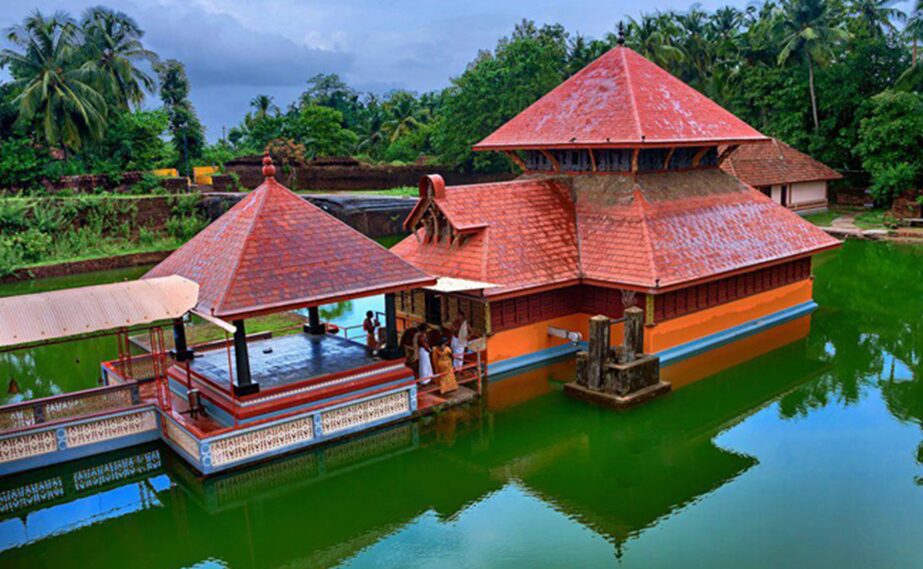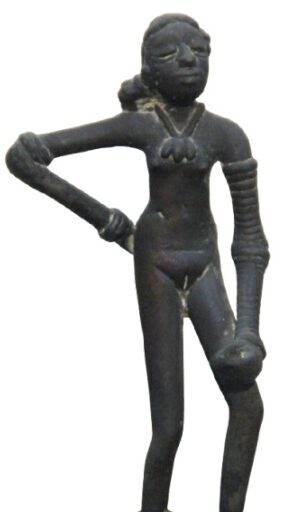HAPPY TRAVELLING
A complete tourist and cultural guide of
Kerala
Is known for its lush landscapes, vibrant traditions, and classical arts, blending nature and culture beautifully.
Kerala is a state in southern India that boasts a remarkable mix of natural beauty, cultural richness, and spiritual significance. From serene beaches to misty hill stations, Kerala offers diverse experiences, making it one of the most sought-after travel destinations in India. Whether you’re a history buff, adventure lover, or spiritual seeker, Kerala promises something for everyone.
Discover Kerala - Tourist Attractions
Kerala is a serene blend of backwaters, lush landscapes, and age-old traditions. From the tranquil houseboat cruises in Alleppey and the hill stations of Munnar and Wayanad to the coastal beauty of Kovalam and Varkala, the state offers a refreshing escape into nature. Rich in cultural heritage, Kerala is home to classical dance forms like Kathakali and vibrant festivals like Onam. Its wellness tourism, spice plantations, and temple architecture make it a soulful and diverse destination.
Alappuzha
Padmanabhaswamy Temple
Varkala Beach
Wayanad
Munnar
Bekal Fort
Kochi
Athirappilly Waterfalls
Heritage of Kerala

Kerala’s heritage is a vibrant blend of ancient traditions, classical art forms, and architectural marvels. From majestic temples and intricate woodwork to Ayurveda and Kathakali, the state reflects a deep cultural legacy. Influences from trade with Arabs, Chinese, and Europeans have also shaped its rich historical fabric.
The Performing Art of Kerala
Kerala’s culture is a harmonious mix of classical traditions, vibrant festivals, and ancient performing arts. Celebrations like Onam, Vishu, and Thrissur Pooram highlight its festive spirit. Traditional attire includes the white and gold Kasavu saree for women and mundu for men. Art forms like Kathakali, Mohiniyattam, and Theyyam showcase Kerala’s deep-rooted cultural heritage.
Music Form
Kerala has a rich musical heritage rooted in classical traditions and vibrant folk culture. It is known for Sopana Sangeetham, a temple-based classical form, and instruments like the Chenda and Idakka. Folk styles like Oppana, Kolkali, and Mappila songs reflect the cultural diversity of the region.
Kathakali Music
A vocal music style that combines ritualistic music, classical music traditions, and Carnatic music.
Mizhavu Music
A folk music form that involves singing and dancing. The lyrics can range from basic to sophisticated.
Ottamthullal Music
A slow, devotional temple music of Kerala, sung near sanctums with Edakka drum.
Dance Form
Kerala’s dance forms are a graceful expression of its spiritual and cultural roots. Kathakali, known for its elaborate costumes and expressive storytelling, is a classical dance-drama performed across the state. Mohiniyattam, the graceful dance of the enchantress, showcases soft, fluid movements. Folk forms like Theyyam and Thiruvathira celebrate local legends, deities, and community traditions with vibrant rituals and performances.
Kathakali
A traditional dance-drama that tells stories from Indian epics, performed in elaborate costumes and makeup.
Theyyam
A powerful ritualistic dance performed in temples, often involving elaborate costumes and rituals.
Mohiniyattam
A graceful classical dance form performed by women, narrating stories from Indian mythology.
Festivals and Celebrations
Kerala is a land of vibrant festivals, deeply rooted in its rich cultural and religious traditions. These festivals showcase the state’s diverse heritage, with grand processions, colorful decorations, traditional dance performances, and delicious feasts. Whether religious or cultural, each festival is celebrated with enthusiasm, bringing people together in harmony.
Attuvela Mahotsavam
Boat Race
Onam
Kerala's Cuisine
Puttu and Kadala Curry
Kerala Sadya Sambar
Appam and Stew
Kerala’s cuisine is as diverse as its culture, with an emphasis on fresh seafood, rice, and coconut-based dishes. Some popular dishes include:
- Sadya: A traditional vegetarian feast served on a banana leaf.
- Kerala Sadya Sambar: A lentil-based vegetable stew served with rice.
- Fish Curry: Kerala-style fish curry, often served with rice or appam.
- Puttu and Kadala Curry: Steamed rice flour rolls served with black chickpeas curry.
- Appam and Stew: A type of pancake served with a mild, coconut-based stew.
Popular Shopping Items
Kerala offers a variety of shopping experiences, from bustling markets to handicraft stores. Must-buy items include:
- Spices – Cardamom, black pepper, cinnamon from local spice markets.
- Handicrafts – Kathakali masks, coconut shell products, and coir crafts.
- Textiles – Kasavu sarees, Kerala mundu, and handloom fabrics.
- Jewelry – Gold ornaments and temple jewelry.
- Aroma Oils & Ayurveda Products – Herbal oils, soaps, and wellness items.
Best shopping places: Kochi’s Jew Town, Trivandrum’s Chalai Market, and Kozhikode’s SM Street.
Aroma Oils & Ayurveda Products
Handicrafts
Jewelry
Spices
Evolution of Kerala
⇒ Early Habitation: Archaeological evidence from sites like Edakkal Caves and Porkalam reveals Mesolithic settlements, rock engravings, and early human life in Kerala’s Western Ghats.
⇒ Ancient Trade & Influence: Kerala had flourishing maritime trade with Romans, Arabs, and Chinese, known for exporting spices, especially black pepper, since 3000 BCE.
⇒ Chera Dynasty & Cultural Growth: The powerful Chera rulers patronized Tamil-Malayalam literature and Buddhism, laying the early cultural foundation of the state.
⇒ Religious Harmony & Art: With the arrival of Christianity, Judaism, and Islam through traders, Kerala became a model of coexistence, while classical arts like Kathakali and Mohiniyattam thrived.
⇒ Colonial Era: Colonized by Portuguese, Dutch, and British, Kerala saw the rise of fort towns, missionary education, and social reform movements led by visionaries like Sree Narayana Guru.
⇒ Modern Kerala: Formed in 1956, Kerala is today known for high literacy, healthcare, gender development, and a rich legacy of tradition, backwaters, and sustainable tourism.
Safety Measures and Tips
- Stay Alert in Tourist Spots: Popular areas like Kochi, Munnar, and Alleppey draw large crowds. Be cautious of pickpockets in busy markets and transport hubs, and secure your belongings at all times.
- Use Trusted Transport: Prefer app-based cabs (Uber, Ola), government buses, or prepaid taxis. Avoid unregistered autos or boats, especially in less crowded backwater areas.
- Respect Local Customs: Kerala has deep-rooted traditions. Dress modestly, especially when visiting temples like Padmanabhaswamy, and always remove footwear before entering religious places.
- Weather Awareness: Kerala experiences heavy monsoons. Carry rain gear, avoid beach visits during storms, and steer clear of landslide-prone hilly areas during peak rains.
- Emergency Contacts: Keep numbers handy – Police (100), Ambulance (108), Women’s Helpline (1091), and Kerala Tourism Helpline for assistance.
- Food & Water Hygiene: Savor Kerala cuisine, but choose hygienic eateries. Stick to bottled or purified water, particularly in remote or rural areas.
- Eco & Trekking Precautions: In places like Wayanad or Thekkady, opt for guided treks. Do not venture into wildlife zones alone, and always follow park or reserve guidelines.
